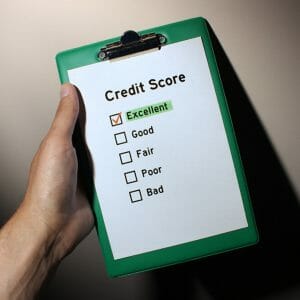
How to Repair Your Credit Scores
Good credit scores, don’t just happen. They’re made.
If you don’t have good credit, there’s an opportunity to do something about it. We’ll outline some steps you can take to help fix your credit score, aka repair your credit. But first, let’s talk about credit scores in general.
Why Credit Scores Matter
Credit scores are essentially your debt report card. Here’s how it works:
Lenders and creditors you’ve borrowed money from share information with the three major credit bureaus about what it was like to work with you. The bureaus then turn this information into credit scores and reports. These scores and reports become important indicators to help other lenders determine if you’re going to pay them back on time.
Credit Scores – Score Types and Numbers
There are two main credit scores: FICO Score and VantageScore.
Both grade borrowers using scales that run from 300 to 850. The difference comes down to who does the calculating and how they label different scores. Here’s a quick overview.
The Fair Isaac Corporation puts together the FICO Score, which has five categories:
- 800+ Exceptional
- 740-799 Very Good
- 670-739 Good
- 580-669 Fair
- Less than 580 Poor
The three credit bureaus – TransUnion, Equifax and Experian — put together VantageScore, which also has five categories:
- 781-850 Excellent
- 661-780 Good
- 601-660 Fair
- 500-600 Poor
- 300-499 Very Poor
A poor credit score can make life a little harder. When you apply for new credit, you may get stuck with fees or a higher interest rate, or you may be denied new credit entirely. Depending on where you live, you may pay more for car insurance for having poor credit.
How You Get a Poor Credit Score
These are just a few reasons you may have a poor to very poor credit score:
- Not paying your bills.
- Paying your bills late.
- Not paying enough.
How to Repair a Credit Score
Repairing credit requires patience and diligence. Not terribly exciting, we know. But repairing a low credit score is possible, and that’s the key.
Here’s a list that can help you improve your credit score sooner rather than later:
1. Pay Off All Debt
How to do this: The first step to repairing your credit is to begin paying off all debt. Whatever debt you have that is taking points off your credit score, eliminate it. A good way to do this is to visit a credit monitoring site and begin taking a look at and monitoring your credit. Once you start paying off this debt, you’ll see your credit score skyrocket.
2. Pay Your Bills
How to do this: If you can pay all of your bills on time each month, then your credit score is going to reap the benefits. If you owe the same amount of money every month and your balance could cover this without question, set up automatic payments. Be sure to keep track of your short-term money goals.
3. Check Your Credit Report
How to do this: You can order a free credit report from each of the credit bureaus – TransUnion, Equifax and Experian – every 12 months. Check for errors and fix them. Make sure your personal information and employment history is accurate, and check that each of your financial accounts is only listed once.
4. Don’t Apply for Multiple Credit Cards
How to do this: Unlike applying for a mortgage, an auto loan, or a student loan, applying for several credit cards generates multiple hard pulls about your credit history and can hurt your score.
5. Don’t Close Accounts
How to do this: Getting rid of as many credit accounts can actually lower your credit score. By paying off accounts, but keeping them open with available credit, you’ll help your score over time. In this case, the old saying “use it or lose it” doesn’t apply. In the world of credit ratings, what you don’t use – your available credit – is almost like gold.
Thoughts?
If you’ve fixed your credit score – Congratulations! Now it’s time to maintain your credit.
Everything we’ve mentioned – paying bills on time, not maxing out your credit lines, taking on credit only when you need it and watching your credit reports – is what you need to do keep a high credit score. So, remain consistent.
